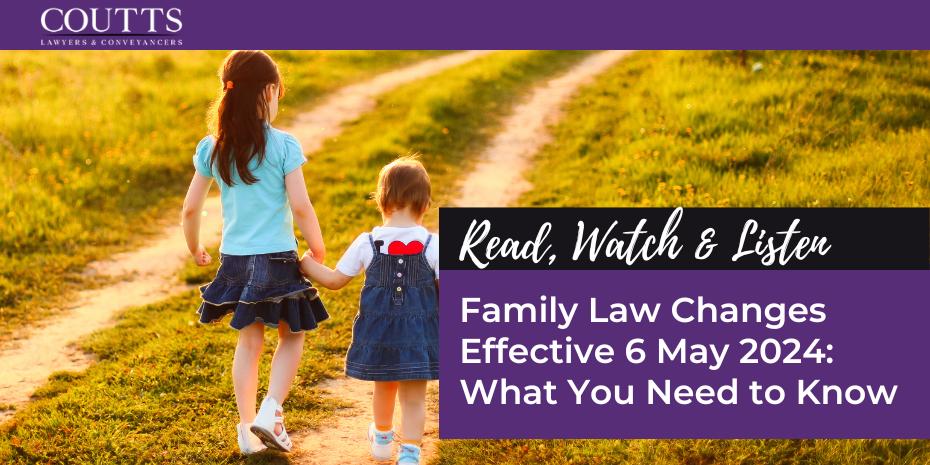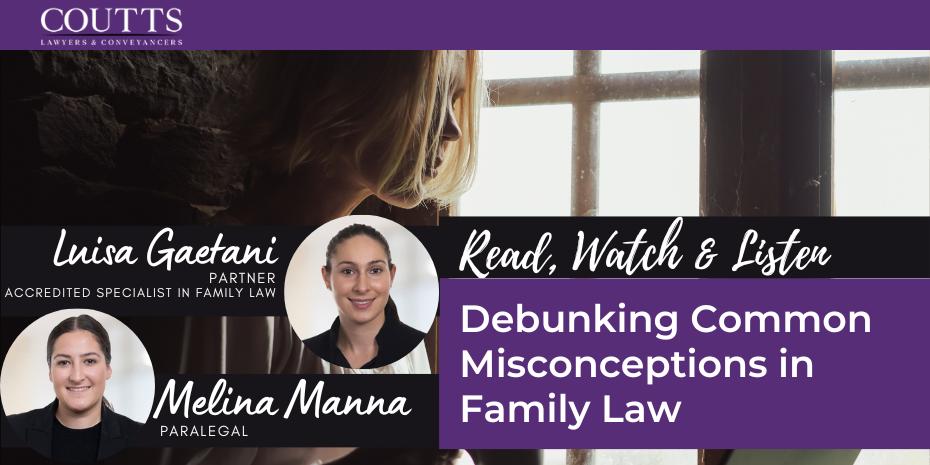KEY TAKE-OUTS:
- In determining parenting arrangements, the Court will look to the best interests of the child.
- This involves taking into consideration the benefit of having a meaningful relationship with both parents and protecting the child from any harm.
- Parenting arrangements can be finalised informally through Parenting Plans or formally through Consent Orders.
The breakdown of a relationship can be incredibly stressful for both parties involved. This stress is further heightened when the separation involves children.
When separating, the parties need to consider the division of the property pool and create a formal arrangement for the care of the child/children. This is facilitated by the Federal Circuit and Family Court of Australia. Parenting arrangements and property settlements can be conducted at the same time or separately, dependant on personal preference and complexity of the matter.
Many people still assume that the responsibility of the care, welfare and development of the child automatically falls on the mother. This is not the case in Australia. The Federal Circuit and Family Court of Australia provides equal rights to both parents. Pursuant to section 61DA of the Family Law Act 1975, the Court will presume that the parenting arrangement would involve both parents equally sharing all responsibilities for the child/children.
This article will outline what the Court may consider when discussing and rebutting the presumption of ‘equal, shared care’, how to formalise parenting arrangements and what you should do if someone breaches parenting Orders once they are finalised.
Best Interest of the Child
As mentioned above, the Court presumes that the parenting arrangement would involve equal shared responsibility between the parents. This intends to promote the best interest of the child. However, the Court recognises that it is not the ideal arrangement in all circumstances.
Section 60CC of the Family Law Act 1975 positions the interests of the child as being of primary concern and therefore, the presumption of ‘equal shared responsibility’ can be rebutted through the exploration of this concept.
In examining the best interest of the child, the Court will have regard to the benefit that the child would experience by having a meaningful relationship with both parents and the need to protect the child from any harm. For example, if the child is exposed to abuse, neglect, or family violence.
Additionally, the best interest of the child also encompasses their wishes, the nature and history of the relationship with each parent, any practical difficulties in fulfilling this responsibility, the specific needs of the child and the communication between each parent.
Therefore, if equal shared responsibility is not in the child’s best interest, an argument would need to be made at Court to rebut this presumption.
Parenting Arrangements
Parenting arrangements can be done informally through a Parenting Plan or formally through Consent Orders.
A Parenting Plan is a written agreement that covers the parenting arrangements. However, a parenting plan is not formally approved by the Court. If you choose to use a Parenting Plan to formalise your parenting arrangements, you should be advised that if someone breaches the Plan, the Court cannot enforce it.
Alternatively, Consent Orders are written terms that are agreed upon between the parties and approved by the Court through an application process. To be approved, the Court must be satisfied that the Orders are in the best interest of the child.
Is a Parenting Plan or Consent Orders the best option for my situation?
Whilst Parenting Plans and Consent Orders are similar, the striking difference is legal protection. A Parenting Plan is discussed and agreed upon outside of the court system. Therefore, they are unenforceable and serve as more of an informal agreement. However, Consent Orders are managed within the Federal Circuit and Family Court of Australia and thus, enforceable if someone breaches the Orders.
If there are Consent Orders in place and either parent does not comply with the Orders, then the other party is entitled to make a Contravention Application. If successful, the Court may order for the faulting party to pay a fine or compensate for the lost time.
However, if the circumstances surrounding the child or the parents’ ability to provide care significantly changes, Consent Orders require an application to the Court to vary the original Orders. Alternatively, if varying the Order is too costly, a subsequent Parenting Plan can be entered into after the Consent Orders have been made to show the parties intention to vary.
The individual needs of a child and each family dynamic is unique and therefore, each parenting arrangement should reflect each situation. Therefore, whilst Consent Orders may be the best solution to some, it may not be the best option for others. Our Family Law team at Coutts would be happy to provide advice as to which option best suits your unique circumstances.
Conclusion
The Court will always intend on promoting what is in the best interest of the child which includes having a meaningful relationship with both parents. Your parenting arrangement can be finalised in an informal or formal process which your solicitor can assist you with. The Family Law team at Coutts is dedicated to helping you navigate these complex situations and ultimately, achieving the best outcome for your family.
ABOUT LUISA GAETANI:
Luisa is a Partner at Coutts Lawyers & Conveyancers and head of our Family and Criminal Law divisions. Since being admitted in 2014, Luisa has practiced solely in the areas of criminal and family law. It is her sensitive yet pragmatic approach that has allowed her to develop a strong rapport and build trusting relationships with her clients. Should a client’s matter proceed to court, Luisa has the skillset and experience to assist her clients through this process and where required, will draw upon her network of barristers to further benefit her client’s outcomes.
For further information please don’t hesitate to contact:
Luisa Gaetani
Partner
Accredited Specialist in Family Law
luisa@couttslegal.com.au
1300 268 887
ABOUT ISABEL STRAHAN:

Isabel joined the Coutts team in January 2022, as a Paralegal working within our Family & Criminal teams. She is currently studying for a Bachelor of Laws and Bachelor of Arts, Majoring in International Relations and Minoring in Cultural Studies at the University of Wollongong. It is her dedication and hardworking nature that will see her go far within Coutts.
For further information please don’t hesitate to contact:
Isabel Strahan
Paralegal
info@couttslegal.com.au
1300 268 887
Contact Coutts today.
This blog is merely general and non-specific information on the subject matter and is not and should not be considered or relied on as legal advice. Coutts is not responsible for any cost, expense, loss or liability whatsoever to this blog, including all or any reliance on this blog or use or application of this blog by you.




